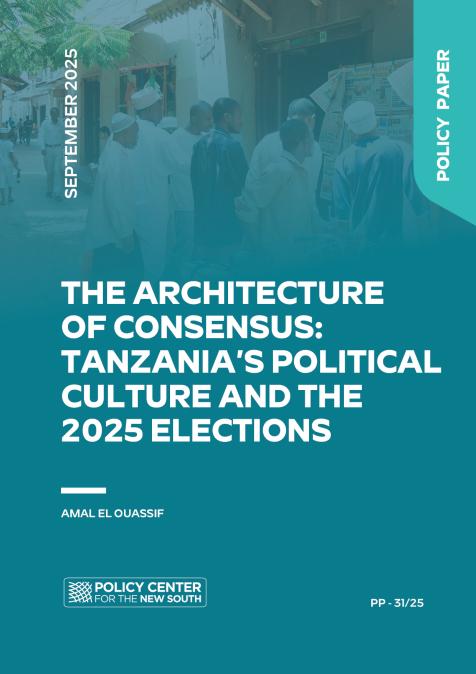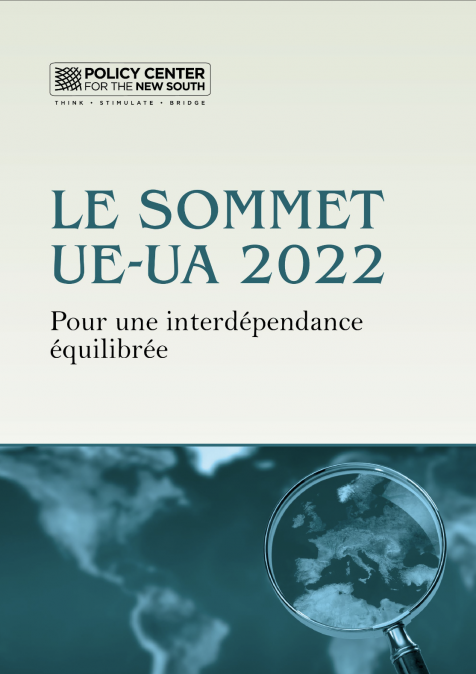Publications /
Opinion
The CNN report broadcasted on November 14th on a sale of African migrants as slaves in Lybia has caused a wave of shock and protest. More than ever, the African migration, often perceived as a scourge, is on the agenda. The Atlantic Dialogues will discuss it in another way. Why ? Because the cold analysis of facts and figures shows that the African clandestine migration to Europe, far from an invasion, may well be an opportunity...
« African Migration : A Cause for Panic ? »
With this title, the second chapter of the next Atlantic Currents report, to be released by OCP Policy Center on December 12th, offers a very useful perspective on the statistics published by the International Organisation for Migration (IOM), amongst other sources.
The author of this chapter, Abelhak Bassou, senior fellow at OCP Policy Center, reminds us that on a total of 335 158 migrants having reached illegaly the European shores in 2016, 90 % are African indeed. Nonetheless, such was not the case one year before, during the peak of the « migrant crisis » caused by the arrival in Europe - through Turkey - of more than 850 000 migrants and refugees from Syria, Afghanistan and Iraq. Between January and the end of October 2017, according to IOM, a much lower influx of 150 982 people has reached Europe illegaly, with 100 000 crossings through Lybia and 10 000 via Gibraltar. The rest, more than 40 000 newcomers, has arrived through Cyprus, a route not taken by African migrants.
Still at the margins of the world
Moreover, the African migration amounts to merely 10 % of the global migration in the world. It occurs in most cases (80 % of its grand total) within the continent. A further look at the figures show that only 12 % of African migrants head for Europe, 6 % for Asia and North Africa, and 2 % elsewhere in the world. This is also the case for West Africa, the region where most of the African migrants come from. A massive share of 70 % of migrants born in West Africa do not leave Africa. Only 15 % of them go to Europe, while 15 % prefer the USA and other destinations in the world.
« A Threat or an Opportunity for Europe ?»
All these figures do not imply that the plight of African migrants taking the chances of a dangerous – and sometimes lethal - trip towards Europe at the hands of traffickers is of a lesser importance. It is an actual matter of life and death. This question is here to stay and needs real care in terms of public policies, given the demographic transition in Africa and the lack of decent jobs for its youth. It will also be at stake during the Atlantic Dialogues conference. A promising Diner Breakout on « Migration : A Threat or an Opportunity for Europe ? » is scheduled for December 13th. Chaired by Emiliano Alessandri, Senior External Cooperation Officer for Security and Cooperation in Europe (OSCE) and Senior Transatlantic Fellow at the German Marshall Fund of the United States (GMFUS), it will have as speakers Khalid Chegraoui, Professor at the Institute of African Studies of the Mohamed V University (Rabat, Morocco), Jessica De Alba-Ulloa, Researcher at Universidad Anahuac (Mexico) and Senior Associate at the Mexican Council on Foreign Relations, Ferdinando Nelli Feroci, President of the Instituto Affari Internazionali (IAI, Rome, Italy) and Helga Flores Trejo, former Executive Director of the Heinrich Boell Foundation.
On December 15th, the 8th Plenary Session of Atlantic Dialogues on «Security in the Sahel and Transatlantic » will also deal with the African migration, during an In-Focus Session on its economics and security aspects. To be moderated by Ian Lesser, Vice President af the German Marshall Fund of the United States (GMFUS), the debate will allow exchanges between Paolo Magri, Executive Vice President of the Italian Institute for International Political Studies, Chiedu Osakwe, Chief Trade Negotiator and Director General, Nigerian Office for Trade Negotiations, Khalid Zerouali, Director for Migration and Borders Control at the Moroccan Ministry of Interior and last but not least, Major General Barre R. Seguin, Director for Strategy, Plans and Programs of U.S. Africa Command.





